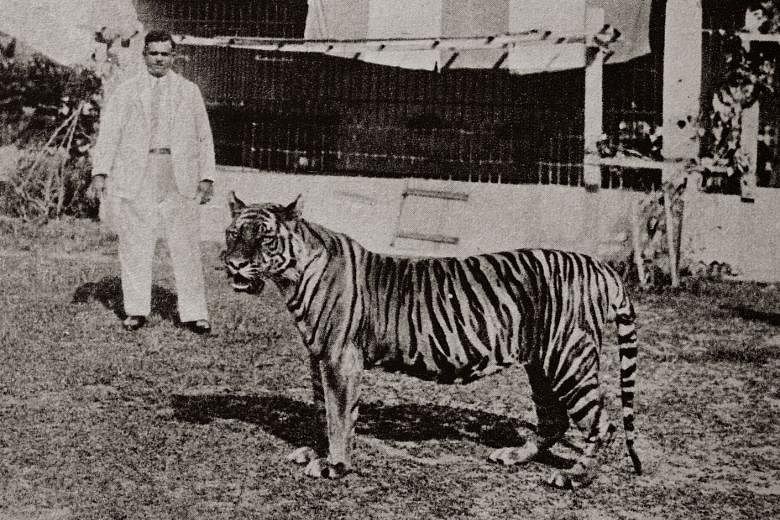SINGAPORE'S first zoo, which had its beginnings at a family bungalow in Serangoon Road, has at least one unique bragging right.
Albert Einstein, the father of modern physics, was among the first visitors to the private zoo, which was run by animal lover William Lawrence Soma Basapa from 1920 to 1922.
His zoo and the history of Singapore's status as a hub for animal collectors in the late 18th and early 19th century, are part of a travelling exhibition by the National Heritage Board.
The month-long exhibition, held in conjunction with the Singapore Zoo's 40th anniversary, was launched yesterday. It will include the Woodlands and Jurong regional libraries and Central Public Library.
The board's director of heritage institutions, Mr Alvin Tan, said it hopes to raise public awareness about Singapore's "little known early zoos".
According to press reports from the period, Einstein was in Singapore to raise funds for The Hebrew University of Jerusalem. He had written in his travel diary that he had come across "a wonderful zoological garden".
With its role as a trading centre, Singapore was the port of call for collectors and officials from zoological societies in Britain and the US who travelled here to source rare local specimens.
Zoological enthusiasts included Singapore-based Chinese businessman Hoo Ah Kay, who kept rare animal and bird species at his mansion at Whampoa Gardens in the mid-1800s, and Haji Marip, who ran an exotic animal trade shop from 1880 to 1915.
But it was Singaporean-Indian landowner Basapa, who captured the hearts of local residents.
Basapa, who was often accompanied by a full-grown Bengal tiger named Apay, moved his collection of animals and birds from his Serangoon home to an 11ha seafront estate in Punggol.
Networking with international zoos, he was the first in Singapore to import seals. He also brought in Arabian camels, black swans and Shetland ponies from South Africa, America and Australia respectively.
With a collection of 200 animals and 2,000 birds, Ponggol Zoo became a major attraction both nationally and internationally in pre-war Singapore.
The zoo which cost $35 a day to run, charged visitors 40 cents.
But Basapa's foray into zoo- keeping was short-lived. At the start of World War II, the British moved their forces to the north of Singapore in anticipation of invading Japanese forces. Basapa was given 24 hours to relocate his animals and birds.
The time-frame was too tight so the British took the land, released the birds and shot the rest, said his grandson Lawrence Basapa, 66, a company director.
"It makes us very sad till today that the animals were slaughtered and sacrificed.
"My grandfather died a broken-hearted man."
He said, however, that he is glad the efforts of Singapore's pioneers are being remembered. "It's a good way to refresh our memory of what our zoos used to be like - simple but with a lot of heart."


